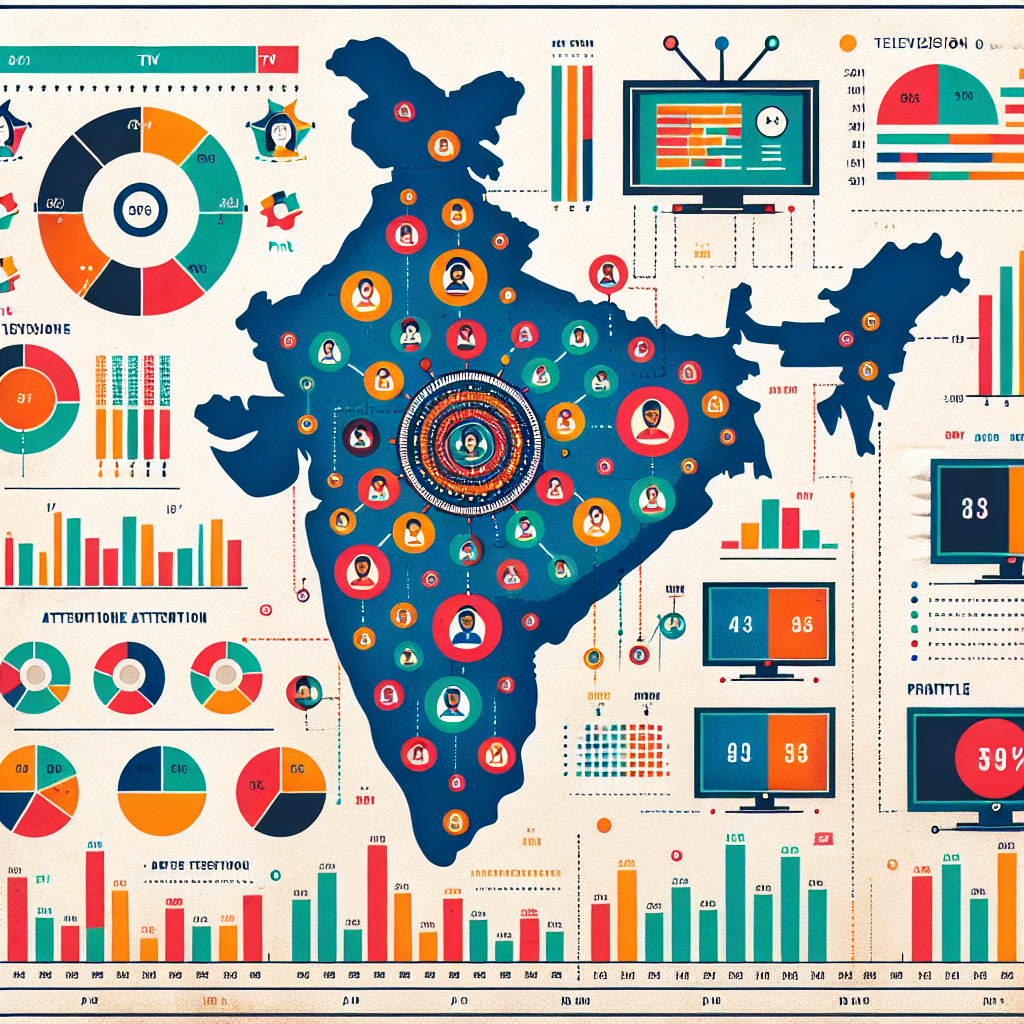The Role of Big Tech in Shaping the Future of Privacy-First Advertising
Ray remembers the first time they truly understood the value of their digital footprint. It was a lazy Sunday afternoon when Ray was searching for a pair of running shoes online. Within minutes, these exact shoes began following them across every platform they visited. At first, it seemed helpful—even magical. But as the days passed and the ads persisted, a creeping discomfort set in. How much did these companies really know about Ray? What was happening behind the digital curtain? This moment of realization sparked Ray's curiosity about the intersection of technology, privacy, and advertising—a curiosity that has only deepened as they enter what many are calling the privacy-first era of digital marketing.
Introduction: The Paradigm Shift in Digital Advertising
The digital advertising landscape is undergoing a seismic transformation. After decades of relatively unrestricted data collection, the industry is rapidly pivoting toward privacy-centered approaches. This shift is driven by a perfect storm of regulatory pressures (GDPR, CCPA), platform changes (Apple's App Tracking Transparency), and evolving consumer expectations around data privacy.
At the center of this transformation stand the Big Tech companies—Google, Apple, Facebook (Meta), Amazon, and Microsoft—whose decisions ripple throughout the entire digital ecosystem. With their vast user bases, technological capabilities, and market influence, these companies are not merely adapting to the privacy-first era; they are actively shaping it.
1. The Apple Revolution: Privacy as a Competitive Advantage
Apple's aggressive privacy stance has fundamentally altered the digital advertising terrain. By implementing App Tracking Transparency (ATT) in iOS 14.5, Apple required explicit user permission for cross-app tracking—a feature previously taken for granted by advertisers and ad networks alike.
The results were immediate and profound. According to Flurry Analytics, only about 21% of users worldwide opt-in to tracking when prompted. This single decision by Apple resulted in an estimated $10 billion loss in advertising revenue for Facebook in 2022 alone.
Apple's privacy push represents a strategic differentiation in the tech marketplace. By positioning privacy as a premium feature, Apple has aligned its business model with consumer trust rather than data monetization. This approach has not only bolstered Apple's brand but has forced competitors to reconsider their own privacy practices.
2. Google's Privacy Sandbox: Reinventing the Advertising Ecosystem
Google's approach to privacy-first advertising has been more measured but potentially more transformative. The company's Privacy Sandbox initiative aims to develop new standards for digital advertising that preserve effectiveness while enhancing privacy.
The most discussed element is Google's plan to phase out third-party cookies in Chrome by 2024. Given Chrome's dominant market share (approximately 65% globally), this decision will fundamentally change how advertisers target and measure campaigns.
Google's proposed alternatives, like Federated Learning of Cohorts (FLoC) and its successor Topics API, attempt to balance privacy with advertising relevance by grouping users with similar interests rather than individually tracking them. These technologies move computation to the device level and limit the data shared with advertisers and platforms.
According to research from the World Federation of Advertisers, 74% of CMOs believe Google's cookie deprecation will have a significant impact on their marketing strategies, forcing a reevaluation of measurement frameworks, audience targeting, and media allocation.
3. Meta's Data Dilemma: Adapting to a Privacy-Constrained Future
Perhaps no company faces greater challenges in the privacy-first era than Meta (formerly Facebook). With a business model heavily dependent on targeted advertising, Meta's revenue streams have been directly impacted by privacy regulations and platform changes.
The company's response has been multifaceted:
- Investing in AI-driven contextual advertising that relies less on individual data
- Developing on-platform shopping experiences that capture first-party data
- Building immersive environments (the metaverse) where new forms of engagement and advertising can flourish
Meta's Conversion API represents another adaptation, allowing advertisers to share data directly from their servers rather than relying solely on pixel-based tracking. This server-side approach improves data accuracy in a privacy-constrained environment while maintaining compliance with user consent choices.
4. Amazon and Microsoft: The Rising Advertising Powers
As traditional digital advertising faces privacy headwinds, Amazon and Microsoft have emerged as significant beneficiaries of the changing landscape.
Amazon's advertising business has grown exponentially, reaching $31 billion in 2021, largely because it operates within a closed ecosystem where first-party data powers highly relevant advertising. When shoppers search for products on Amazon, they signal immediate purchase intent—data that is immensely valuable to advertisers and unaffected by cross-site tracking limitations.
Microsoft, through its LinkedIn platform and expanding advertising network, has similarly leveraged first-party professional data to create targeted advertising opportunities that remain effective in a privacy-first world. The company's $19.7 billion acquisition of Nuance Communications also signals a strategic investment in conversation intelligence that could power the next generation of contextual advertising.
5. The Future Landscape: Collaboration and Competition
As privacy regulations continue to evolve, Big Tech companies face a complex balance between collaboration and competition. Industry initiatives like the Partnership for Responsible Addressable Media (PRAM) bring together technology platforms, advertisers, and publishers to develop privacy-preserving standards for digital advertising.
According to Dr. Augustine Fou, a digital marketing expert and former digital strategist at McKinsey, "The future of advertising isn't about finding workarounds to privacy regulations, but fundamentally rethinking measurement and effectiveness in ways that respect user autonomy."
This rethinking includes:
- Greater emphasis on aggregated, anonymized data
- Contextual targeting renaissance powered by advanced AI
- First-party data strategies and direct consumer relationships
- Privacy-enhancing technologies like homomorphic encryption and differential privacy
Conclusion: The Imperative of Responsible Innovation
The decisions made by Big Tech companies today will determine the shape of digital advertising for years to come. While privacy regulations provide a framework, the technological implementation of privacy principles will largely be determined by these dominant platforms.
The most successful approaches will be those that balance legitimate business interests with genuine respect for user privacy. Companies that treat privacy merely as a compliance exercise will likely fall behind those that embrace it as a core value and competitive differentiator.
As Professor Shoshana Zuboff of Harvard Business School notes in her seminal work on surveillance capitalism, "The question is no longer 'Do they know too much about us?' but rather 'What should they do with what they know?'" The answer to this question will define the next era of digital marketing.
Call to Action
For marketing leaders navigating this transformed landscape:
- Invest in first-party data infrastructure and consent management platforms
- Develop measurement frameworks that don't rely exclusively on individual-level tracking
- Build direct relationships with consumers based on transparent value exchange
- Participate in industry forums shaping privacy standards and practices
The privacy-first era isn't simply a regulatory hurdle to overcome—it represents an opportunity to rebuild digital advertising on a foundation of respect, transparency, and genuine consumer value. The organizations that recognize this opportunity will not just survive the privacy transformation but thrive because of it.
Featured Blogs

TRENDS 2024: Decoding India’s Zeitgeist: Key Themes, Implications & Future Outlook

How to better quantify attention in TV and Print in India

AI in media agencies: Transforming data into actionable insights for strategic growth

How the Attention Recession Is Changing Marketing

The New Luxury Why Consumers Now Value Scarcity Over Status

The Psychology Behind Buy Now Pay later

The Rise of Dark Social and Its Impact on Marketing Measurement

The Role of Dark Patterns in Digital Marketing and Ethical Concerns








